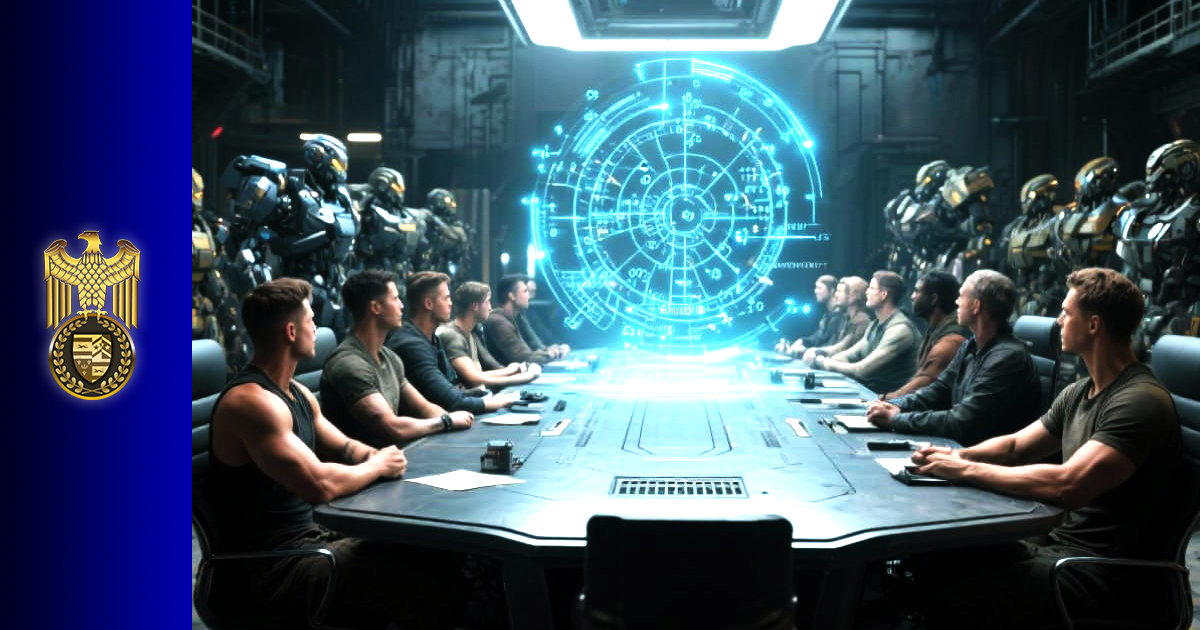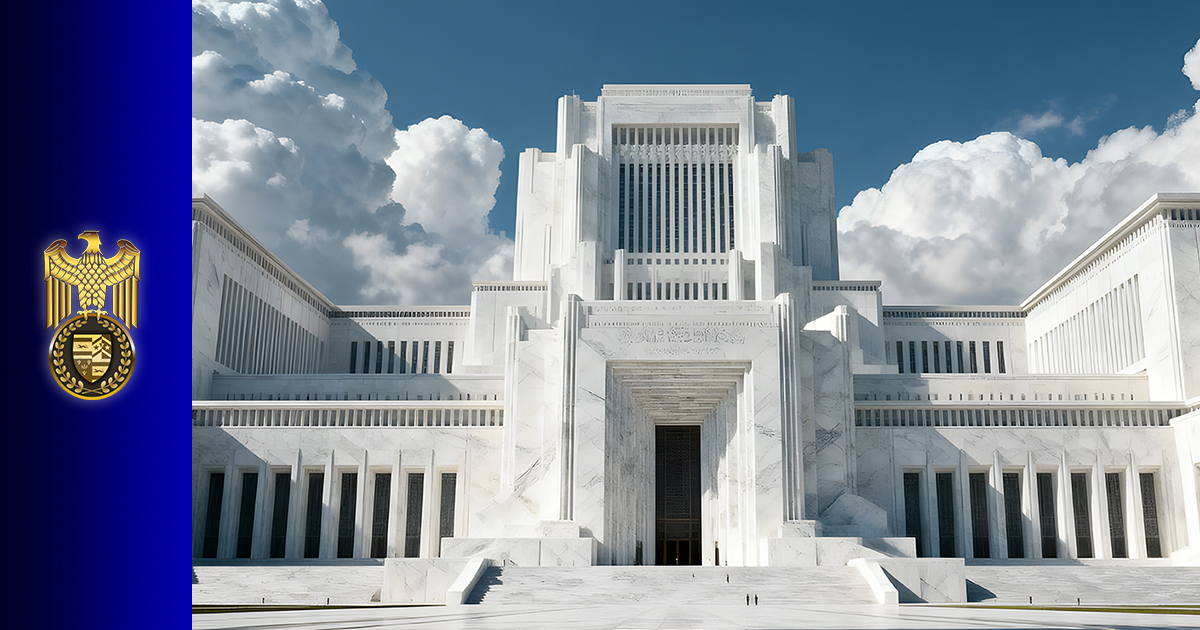


The work of the Company advances on many fronts.
We bear grave duty for leadership, development, and management of conflict across the full spectrum of noncooperative arenas. Our divisions and teams are acutely engaged in not only exhortation and guidance, but also the research and findings that are necessary for the advancement of justice.
This often occasions demand for education of our people on concepts and concerns that, while seemingly abstract, present concrete dangers to their safety and security, sustenance and provision, and above all things directly attack the identity and meaning of their nation under the State.
All too often the abstract structures of international law present the State with incentives to crimes of war and totalitarian dominance.
Today I will share with you both great risk and great hope; for knowledge of truth brings hope.
We will review a spiral within international conventions that both draws hostile State malfeasance, and delivers legitimacy of rebellious justice to you.

The most important place to start is understanding the difference between International Humanitarian Law ("IHL") and human rights law ("IHRL").
The International Committee of the Red Cross ("ICRC") makes note of important differences that are within the scope of this analysis:
Temporal scope of application
While IHL applies exclusively in armed conflict (see Question 5), human rights law applies, in principle, at all times, i.e. in peacetime and during armed conflict. However, unlike IHL, some human rights treaties permit governments to derogate from certain obligations during public emergencies that threaten the life of the nation. Derogation must, however, be necessary and proportional to the crisis, must not be introduced on a discriminatory basis and must not contravene other rules of international law – including provisions of IHL. Certain human rights can never be derogated from: among them, the right to life, the prohibition against torture or cruel, inhuman or degrading treatment or punishment, the prohibition against slavery and servitude and the prohibition against retroactive criminal laws.
Let's look at this important concept of derogations:
In International Human Rights Law, certain major treaties contain derogation clauses, which allow a State to suspend or restrict the exercise of certain treaty rights in emergency situations.
Additionally, armed conflict is one of the permissible invocations of derogation:
The derogation mechanisms in Human Rights Law can only be invoked in case of public emergency threatening the life of the nation, such as an armed conflict.
Generally speaking, an intrastate (as in between a State and internal insurgents) armed conflict raises certain very complex challenges and dilemmas:
Even though the text of Common Article 3 explicitly declares that the ‘‘provisions shall not affect the legal status of the Parties to the conflict’’, states are more concerned about the implicit status that the invocation of Common Article 3 grants to armed opposition groups– a de facto recognition of some sort of equality with an entity threatening the state’s sovereign status [emphasis added] and, quite possibly, very existence.
Why is this so important to the Dissident Right, as Western states descend into woke madness, openly assault freedom of speech, enforce murderous vaccine mandates, and otherwise commit depredations upon their own citizenry?
Consider carefully the implications:
The principle of equality of belligerents, central to the traditional law of armed conflict, is arguably the most disagreeable aspect for states when it comes to adopting a law of non-international armed conflict. By its very nature, the principle strikes at the central tenet of the state, that being its authority over its constituents.
What is this Common Article 3? It deals with the definition of "combatants":
Rule 3. All members of the armed forces of a party to the conflict are combatants, except medical and religious personnel.
Most adult Americans of a certain age are familiar with the willingness of the United States government, by example, to declare their own citizens enemy combatants (belligerents) and kill them with drone strikes.
Where the State makes declaration that its own citizens are belligerents, a fascinating result comes into play:
The principle of equality of belligerents is especially sensitive in non international armed conflict, due to the lack of combatant immunity. Effective equality would dictate that both sides would be able to prosecute captured combatants for mere participation in hostilities. In international armed conflict, this would pose no conceptual problems. Yet non-international armed conflict is a different story. If state authorities alone, due to their traditional monopoly on legislative and judicial organs, are allowed to prosecute rebel soldiers for mere participation in hostilities, and not vice versa, the question of equality comes into question.
"Turnabout is fair play" applies here:
An effective principle of equality would require that armed opposition groups have the legal capacity to exercise the rights which flow from the obligations and prohibitions of IHL. Otherwise there is little left to convince them to comply with IHL at all.
Declare your own citizens to be combatants, and the can of worms is opened.
How does this impact the work of the Company?
In particular, it underscores the IHL and IHRL intersection with the Tribunals:
Article 3(1)(d), protecting persons not or no longer taking part in hostilities, prohibits ‘‘the passing of sentences and the carrying out of executions without previous judgment pronounced by a regularly constituted court, affording all the judicial guarantees which are recognized as indispensable by civilized peoples’’.
But is it binding on both sides?
Where the State declares under domestic law that a segment of its own dissident citizens are combatants, what happens to the justice system within that nation?
A special challenge posed by the international humanitarian law (IHL) principle of equality of belligerents in the context of non-international armed conflict is the capacity of armed opposition groups to pass sentences on individuals for acts related to the hostilities. Today this situation is conflated by the concurrent application of international human rights and criminal law. The fair trial provisions of IHL can incorporate their human rights equivalents either qua human rights law or by analogy, recognizing that human rights law does not account for the anomalous relationship between a state and non-state party. It is argued that the preferred solution is the latter. This would put greater focus on the actual fairness of insurgent courts rather than on their legal basis [emphasis added]. Moreover, it would be consistent with the equality of belligerents principle, a vital condition to encourage IHL compliance by armed opposition groups.
And therein lies the dilemma for the totalitarian State:
Two possible conclusions can be drawn from the wording of Common Article 3(1)(d). The first is that it was adopted by states in a spirit of ‘‘inequality’ ’consistent with traditional state monopoly on the administration of justice under domestic law. Under this interpretation, Article 3(1)(d) would effectively prohibit armed opposition groups from passing sentences or carrying out executions (except possibly where they have gained control over existing courts), as armed opposition groups would not be deemed to have the requisite capacity to establish a ‘‘regularly constituted’’ court and/or to legislate to meet the judicial guarantees component. Alternatively, armed opposition groups would have the legal capacity, a conclusion which would require states to accept a parallel non-state legislative and judicial system outside of their authority. The result is either a situation in which the principle of equality loses its effective meaning, or one in which a state is potentially obliged to relinquish fundamental components of its sovereignty to a proven enemy-from-within.
Therefore this incentivizes the State, faced with either recognizing the equality of belligerents and thus the legitimacy of competing insurgent legal systems, courts, sentences, and executions - once it has gone down that road of formalizing hostilities against its own people - or doubling down with cascading intranational violations of both IHL and IHRL in furious attempt to rapidly stomp out dissident growth with fait accompli.
Do you trust your rotted States as they slide through their self-created avalanche of collapse?
Do you believe your oligarchic rulers are devoted to rule of laws and not of men?
Do you witness your malevolent officials edge your nation and people closer and closer to civil conflict?
1 in 5 Americans are prepared to accept violent solutions to the increasing divide.
Even foreign leaders are acutely aware of what faces the hard Right as this Age of Militants flowers at the start of the Third World War.
Throne Dynamics trains strong, capable leaders to deliver global eternal legacy. We provide full spectrum dominance consulting in noncooperative arenas to qualified clients in critical continuity industries.
As part of this work, and in keeping with our duty to advance justice, our establishment of the Tribunals pays careful attention to both IHL and IHRL.
We will continue this care, and our direct attention to the laws and customs of war.
The Tribunals are currently under development.
Investors, partners, and clients with questions should contact their Relationship Manager.
Individuals new to the Company are encouraged to complete their free Raw Human Capital assessment.
Trotsky was no fool:
You may not be interested in war, but war is interested in you.
Never forget it, or your duty to your people.
International Committee of the Red Cross. (2004). What is International Humanitarian Law? https://www.icrc.org/en/doc/assets/files/other/what_is_ihl.pdf
International Committee of the Red Cross. (2015, January 22). What is the difference between IHL and human rights law? International Committee of the Red Cross. https://www.icrc.org/en/document/what-difference-between-ihl-and-human-rights-law
Derogations | How does law protect in war? - Online casebook. (n.d.). Casebook.icrc.org. https://casebook.icrc.org/a_to_z/glossary/derogations
Somer, J. (2007). Jungle justice: passing sentence on the equality of belligerents in non-international armed conflict. International Review of the Red Cross, 89(867), 655–690. https://doi.org/10.1017/s1816383107001221
(2023). Icrc.org. https://ihl-databases.icrc.org/en/customary-ihl/v1/rule3
Hamdi v. Rumsfeld, 542 U.S. 507 (2004). (2020). Justia Law. https://supreme.justia.com/cases/federal/us/542/507
Webteam, W. (2012, July 20). Is it Legal for the U.S. to Kill a 16-year-old U.S. Citizen with a Drone? Amnesty International USA. https://www.amnestyusa.org/updates/is-it-legal-for-the-u-s-to-kill-a-16-year-old-u-s-citizen-with-a-drone
How Militants Spot Strategic Errors By The Deep State. (n.d.). www.thronedynamics.com. https://www.thronedynamics.com/intel/how-militants-spot-strategic-errors-by-the-deep-state
1 in 5 Americans think violence may solve U.S. divisions, poll finds. (2024, April 3). PBS NewsHour. https://www.pbs.org/newshour/politics/1-in-5-americans-think-violence-may-solve-u-s-divisions-poll-finds
Szalay, D. (2022, December 5). The Rise of the International Nationalists. The New York Times. https://www.nytimes.com/2022/12/05/special-series/orban-le-pen-international-nationalism.html
Throne Dynamics | Community Division | Age of Militants. (n.d.). Www.thronedynamics.com. https://www.thronedynamics.com/age-of-militants
RAW HUMAN CAPITAL | Throne Dynamics. (n.d.). www.rawhumancapital.com. https://rawhumancapital.com


